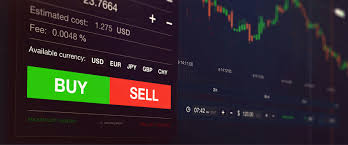
Forex trading platforms are vital tools for anyone looking to engage in currency trading successfully. These platforms provide traders with the technology and functionalities necessary to analyze market trends, execute trades, and manage their investment portfolios effectively. In this guide, we will explore various Forex trading platforms, their features, and what to consider when choosing one. For a more advanced trading experience, you might want to check out forex trading platforms ACEV, which offers various tools designed for profitability and efficiency.
What is a Forex Trading Platform?
A Forex trading platform is a software application that allows traders to place trades in the foreign exchange market. These platforms enable users to view real-time price quotes, charts, and technical analysis tools. They also facilitate the execution of trades either online or via mobile devices. The platforms can vary significantly in terms of features, usability, and design, catering to both novice and expert traders alike.
Key Features of Forex Trading Platforms
Here are some essential features that you should look for in a Forex trading platform:
- User Interface: An intuitive, user-friendly design is crucial for both novice and experienced traders to navigate the platform effectively.
- Market Analysis Tools: Advanced charting tools and technical indicators help traders analyze market conditions and make informed decisions.
- Trade Execution: Platforms should offer fast and reliable execution of trades to minimize slippage and enhance profit potential.
- Account Management: Reliable account management features, including deposit and withdrawal options, are essential for any trading platform.
- Security: Strong encryption and security measures are critical to protect user data and funds.
- Customer Support: Effective customer service ensures that users receive assistance when needed.

Types of Forex Trading Platforms
Forex trading platforms can be categorized into several types, including:
1. Web-Based Platforms

These platforms are browser-based, allowing traders to access their accounts from anywhere with an internet connection. They are often easier to use and do not require any downloads. However, they can be less feature-rich compared to desktop platforms.
2. Desktop Platforms
Desktop platforms are software applications that traders download and install on their personal computers. They typically offer a more extensive range of tools and can handle complex analyses better than web-based platforms.
3. Mobile Platforms
For traders on the go, mobile platforms offer the convenience of trading directly from smartphones or tablets. They enable users to monitor positions, execute trades, and analyze markets anytime and anywhere.
4. Proprietary Platforms
Many brokers offer proprietary trading platforms designed specifically for their clients. These platforms often come with unique features and can provide a customized trading experience.
Popular Forex Trading Platforms
Several platforms are widely recognized for their reliability and range of features, including:
- MetaTrader 4 (MT4): Highly popular among forex traders for its user-friendly interface, advanced charting capabilities, and automated trading features through Expert Advisors.
- MetaTrader 5 (MT5): The successor to MT4, MT5 comes with additional features, including more technical indicators, a wider range of timeframes, and more comprehensive market analysis tools.
- cTrader: Known for its speed and advanced trading capabilities, cTrader offers a unique interface that appeals to algorithmic traders and technical analysts.
- NinjaTrader: A major player in the trading industry, NinjaTrader is designed for active traders and provides advanced charting capabilities and backtesting features.
Choosing the Right Forex Trading Platform
When selecting a Forex trading platform, consider the following factors:
- Your Experience Level: Beginners may prefer platforms that are easier to navigate, while experienced traders might look for advanced charting tools.
- Cost Structure: Assess the trading fees, spreads, and commissions associated with your chosen platform. Some platforms are commission-free, while others may charge fees that can impact profitability.
- Asset Variety: Ensure that the platform offers a diverse range of currency pairs and other trading instruments to suit your trading strategy.
- Regulatory Compliance: Only choose platforms that are regulated by relevant financial authorities to ensure your funds’ safety and protect your trading interests.
- Demo Accounts: Many platforms offer demo accounts where you can practice trading with virtual money. This option is invaluable for honing your skills before risking real capital.
Conclusion
In summary, the choice of a Forex trading platform can significantly influence your trading journey. By understanding the nuances of different platforms, comparing their features, and considering your trading style and needs, you can make an informed decision that enhances your Forex trading experience. Whether you’re a novice looking to get started or an experienced trader seeking sophisticated tools, there is a platform out there tailored to your requirements. Take your time to explore your options, and don’t hesitate to utilize demo accounts to find the best fit for your trading ambitions.

